Behind the Lens - Matt Wragg
BEHIND THE LENS
Matt
Wragg
Wragg
 | I don't think there is a single, good mountain bike photographer who doesn't ride... how do you convey something like the sense of joy you feel from fresh loam spraying up onto your shins if you've never experienced that? -Matt Wragg |
 Tell us a little bit about yourself:
Tell us a little bit about yourself: I'm a grumpy, 31-year old Brit who takes the occasional photo.
 How long have you been shooting photos?
How long have you been shooting photos? I've been shooting since the end of 2011, I guess. I had played around a little bit with cameras before, messed around with mates' cameras, tried to cover a couple of events, but it wasn't something I ever really thought about until then. Back in 2010 I had a good job in London and bought myself a Canon 500D as a birthday present, but had only ever picked up a dozen or so times since. In December 2011 I flew out to Queenstown, NZ, and stayed for a month with a friend, a guy called Luke Sergent. I think he has a far better eye than I will ever have, but he only does it as a hobby at the moment. We'd ride bikes and then try and take photos together - he is the first person who properly talked to me about things like composition, processing and lenses. I guess it sounds pretty bromantic, but we'd do things like go down to Lake Wakatipu in the evening and shoot the sunset. Then we'd come back and I could compare my shots to his, see how much better his were, despite the fact we'd been more or less standing in the same place, and then process them together. I also did a couple of shoots with a local pro photographer there called Stefan Haworth, I'd ride and he'd shoot me (he managed to make me look good enough to bag a couple of spreads in Spoke). It was really helpful seeing how he worked and what kind of things he would be looking for. That trip was definitely a turning point for me, I came back with ideas about being able to take good photos.
 Were you self-taught or have you had any formal training?
Were you self-taught or have you had any formal training?No, no formal training, but I've been lucky enough to have some good photographers help me along the way. There was another British ex-pat when I lived in Italy called Alex Boyce, he used to shoot motocross and MotoGP, and he would give me honest opinions of my work and talk to me about photography as a business. Then there was Matteo Cappe. I started working for Superenduro in Italy where he was the official photographer, so every week I could compare my work to someone who was so good so consistently. At the beginning he'd critique my shots, look through my work and let me know where I'd got something right. When I started to improve, especially in my second year with Superenduro, we'd joke around being competitive, and you know what? That was the biggest compliment in the world, when someone who's that good is comparing shots with you, you know you're doing something right. Even if you're pretty much always losing, ha. Ian Hylands helped a lot too, he offered me some advice, but actually the biggest thing he did was write his guide on the basics of mountain bike photography here on Pinkbike. For my first year or so, that was pretty much my bible when I was struggling.
 When and how did you move from hobbyist to professional photographer/journalist?
When and how did you move from hobbyist to professional photographer/journalist?At the start of 2012, I sold my first shot to Dirt in March 2012. The original plan was to work as a writer, that was what I had always wanted to do, I had never really thought about photography. I had seen the work Seb Kemp was doing with photographers like Sven Martin and Dan Barham and I really wanted to work in that kind of partnership. At the time I was living in a tiny village in the Ligurian mountains and I quickly realised that there was nobody around to work with in that way, so if I wanted to create stories, I was going to have to take my own photos. I'm pretty competitive, so when I realised I was going to have to take photos, I wanted to figure out how to take good photos... As I got into it more and more, started taking it more seriously, I realised how much I love doing it. That was a complete shock for me, as I say, I'd never really thought about photography before that, so it was a huge surprise to realise how much joy I took from doing this. It took me a while to feel comfortable calling myself a photographer, I think there are far too many people who think that calling themselves a photographer makes them one, I mean I could call myself a doctor, but that doesn't make me one, right? It wasn't until I started getting some clients and a reasonable amount of work published that I felt ok using the word to describe myself. Also, to be realistic, the maths for photography made more sense than writing. I honestly don't know how people who don't have staff jobs make a living writing in our sport, I'm not sure there is anybody who manages it, maybe Seb Kemp? It's a shame, but I don't think as a whole mountain biking values writers properly, obviously there are exceptions to that, but we need more of those exceptions. Right now my living mostly comes from taking photos, and I could probably make more money from writing if I dedicated myself to it, but I'm not sure it's possible to survive on writing alone, at least not as a freelancer.
 You’re a skilled rider and bike tester for us here at Pinkbike, how does that knowledge affect your images?
You’re a skilled rider and bike tester for us here at Pinkbike, how does that knowledge affect your images?I don't think there is a single, good mountain bike photographer who doesn't ride. I can't think of one, for sure. In fact, I think the same goes for any of the lifestyle sports - surf photographers surf, climbing photographers climb, and so on. Yes, you could probably cover races as that doesn't change too much from sport to sport, but how do you convey something like the sense of joy you feel from fresh loam spraying up onto your shins if you've never experienced that?
 Do you shoot anything else besides mountain biking?
Do you shoot anything else besides mountain biking?Work-wise it's just bikes for me right now, I'd like to diversify, but in truth, I don't even have enough time to do all the mountain bike projects I'd like to do, so god knows where'd I'd find time for anything else? In the off-season I do tend to do a lot of landscape stuff, mainly because it gives me an excuse to go and enjoy the world around me. I'm not good at doing nothing, but if I have a camera in my hand it motivates me to go out and look at the world. There was a moment last winter when I was watching the clouds burn red on the mountains above my home. Watching them I realised that it was heading out to look for something to take photos of that got me off the sofa and up there, it was one of those moments when I felt really thankful that I found photography, as I'm fairly sure I would have never seen that incredible sunset otherwise.
 What is your favourite thing to shoot?
What is your favourite thing to shoot? I love shooting personal projects - with the race photos there is a certain joy to being under that much pressure to get the shot, and delivering, but to have time and creative control of the line, the light, the body position... And with commercial work you are usually working to a brief, which is fun in its own way, but there's nothing quite like having that freedom and control of what you shoot.
 Why does enduro matter? Do you see it as the future of racing/the key to mountain biking gaining more mainstream popularity?
Why does enduro matter? Do you see it as the future of racing/the key to mountain biking gaining more mainstream popularity?I think talking of enduro as the future of racing is missing the point, and maybe even damaging for it. I have seen some people talk of enduro "taking over" from DH, as in a time when bike parks are creeping more and more into DH racing, people appreciate the rawness of the real enduro courses, they see something that maybe we're losing from DH. That's understandable, but I also think it's wrong in many way. Enduro shouldn't be compared to DH - with motos, do people compare the Erzburg Rodeo to the Monster Energy Cup? No, of course not. Enduro is supposed to be the middle ground for mountain biking, the meeting point for technical and physical racing. At the moment I believe we're in a period of change, enduro is emerging as an international discipline and there are inevitably people making the switch from one discipline to another, sponsors are trying to work out where to focus their budgets and I think people who aren't looking at the long-term are frightened by that, which, considering how short a racer's career can be, is maybe understandable. In the long-term, I think any talk of enduro damaging DH, or XC, is plain bullshit. In fact, I think it will only make DH stronger when things settle down. As the middle point for our sport, it's the natural point for people to have their first racing experiences. Of those people, the ones who prefer the technical side of the sport will graduate onto DH, those who like the physical side will move through to enduro, and those who enjoy both will stay in enduro. I think the future of the sport is three strong, healthy race disciplines - DH, enduro and XC. With DH and XC as the extreme spectacles for the fans and the media, and enduro as a sport purely for the riders, the participation sport for mountain biking.
 What kind of cameras do you use? What lenses? Is there any other gear that you use frequently?
What kind of cameras do you use? What lenses? Is there any other gear that you use frequently?My main cameras are a Canon 1D-X and a 5DmkIII, plus I have a couple of Canon 1DmkIIIs as backups - I'm a big believer in backups because things break, accidents happen and you can't say to your clients "sorry, I haven't got your photos because my camera broke." For lenses, my main three for race coverage are a Canon 70-200 f/2.8, a Canon 16-35 f/2.8 and a Canon fisheye 15mm f/2.8, although I don't always carry the fisheye. In my bag I also have a Canon 200mm f/2.8, Canon 17-40mm f/4, Canon 50mm f/1.4 and a Canon 24mm f/1.4. I do use remote cameras a bit, which I trigger with Pocket Wizard Plus Xs. I don't actually own lights, which I was kind of proud of at first, but these days I'm quite embarrassed by that actually, I need to buy some this winter and get my head round them as I feel to be a good photographer I need to understand them, even if I then choose not to use them. This year I also bought an Olympus OMD-EM5, with a Panasonic 17mm f/1.7 pancake lens. I'm utterly blown away with the image quality you can get from something so small. It's also good because the small camera is so much easier to carry, you don't want to walk around town with a 1D as you look like a bellend and they're all-too-easy to steal... The Olympus has really made me appreciate my Canons too, because you can't just do things instantly with it, where the 1D lets you get away with a lot because it's so fast and so good, whereas with the EM5 you have to think about your shot and settings before you press the button.
 What photo are you most proud of? Why?
What photo are you most proud of? Why?My personal favourite of all my shots is one taken at Lago Etma near Madesimo in Italy last year. I hiked the length of the lake, hopped a couloir and lay in the grass as the riders rode along the skyline at the end of the lake. I like it because it's so different from my race work, so much time went into just getting into place, and I find the colours and the bands in the scenery in the shot really pleasing. For me, it's one photo that captures everything I love about the high mountains. That said... It's been a complete commercial disaster. I have still never sold it, despite having sent it to every photo editor I know. There's a little bit of me that wants to plead with them to run it, but you just have to suck that stuff up. It's a useful lesson, just because you think something is great, it doesn't mean everybody else will. In the end, I got my designer to print it for me, so I'm going to have it printed at A2 size on my wall, so I can enjoy that shot, which is maybe more important than anything else...
 Which photographers do you admire?
Which photographers do you admire?For me, in terms of pure beauty of his images, it has to be Mattias Fredrikson. There's just an elegance to his work that nobody else has, and I'd chop fingers off to find in my own work. Sterling Lorence is incredibly complete, maybe more so than anybody else in our sport, he can do everything and do it to such a high standard, a marketing man described him to me a few years ago saying, "The man literally shits gold." Which is a pretty brutal image, but a fairly accurate assessment of his work. In terms of doing photography as a business, it has to be Sven Martin. Week-in, week-out Sven delivers for his clients. Nobody else on the race circuit has a client list that can touch his, and there's a good reason for that - he delivers. At the races you have to respect Seb Schieck too, he quietly gets on and does his own thing, and his images are always flawless. I also think it's healthy to look outside the sport - Instagram is brilliant for that, in fact. Right now I'm really liking the work of Donald Miralle and Jimmy Chin, plus it's always interesting to follow agencies like Magnum. Looking at those kind of images on Magnum and National Geographic, there's a bit of me that longs to do war photography, but being invited to Iran this year made me realise that I'm not built for that life...
 As Pinkbike’s primary photo editor you pick almost every Photo of the Day here on Pinkbike. What characteristics do you look for in a POD?
As Pinkbike’s primary photo editor you pick almost every Photo of the Day here on Pinkbike. What characteristics do you look for in a POD?It's as simple and as utterly impossible as having that special something. It doesn't even need to be technically perfect, it just has to feel right. I guess I should caveat that by saying that you do need to be able to shoot technically perfect shots before you can break those rules. There's a saying in art - if you want to paint like a child, first you must learn to paint like a master. I'm looking for photos that make me want to ride my bike, that make me want to pack my bags and head for that location... But as I said above about my own personal favourite from my work, just because you think something is great, doesn't mean other people will, it's more important that you take some joy from your shots than worry about getting something as transient as a POD.
 What advice would you pass on to aspiring photographers?
What advice would you pass on to aspiring photographers?The clarity slider isn't an "automatically make things better" button, ha... Joking aside, there are a million things I wish someone had told me, things like looking after your health if you're going to travel a lot, never put your camera or computer in checked baggage, back everything up twice. But, I think the most important thing is, and I know there's a lot of people saying this, but it's worth repeating: "Ask a fair price for your work." I think the hardline of don't work for free is a good starting point, but the truth is that all of us break it once in a while. But you have to work hard to make sure the times you break that rule are the exceptions. The simple fact is that people accepting being paid peanuts for their work, allowing their work to be used for free, not having the confidence to challenge people who are using your work without permission, are damaging the livelihoods of everyone who tries to make a living by taking photos, making it more difficult for photographers to keep following the sport we love as a serious career. Every company that decides they can get their photos for free is less money to pay photographers who are trying to do this for a living. I'd admit that that at first it's intimidating asking some of the established rates for your work, on the face of it they might look like a lot of money (PhotoQuote is a good starting point to read about them), but the truth is that when you start breaking it all down after doing it for a few years, you realise that you need that kind of income to keep functioning. This year so far my camera repair bill alone has been over 3,000 Euros, and that's just one small example of the cost of doing business. Allowing my work to be used in return for exposure isn't going to help me cover that cost. And aside from the moral side of things, if you don't have the confidence to ask a fair price for your work, then you're never going to make it as a professional.
 Who are some of the clients you’ve worked with?
Who are some of the clients you’ve worked with?I feel like I've been really lucky with my clients. Pinkbike are obviously one of my biggest clients and I need to thank Karl, Julian, Tyler, Si and the rest of the team for taking me in, in the way they have. They've given me the room and support to grow as a professional, giving me so much freedom to pursue my development and it's no understatement to say that I wouldn't be where I am today without them - thank you so much. Superenduro too, god knows why they agreed to let me take photos for them when they did, and for that I will be forever grateful. I think as a schoolroom for learning to shoot, there is nowhere better - having 12 races to cover in my first season meant I learnt so much faster than would otherwise have been possible and I feel like part of the family when I attend the races now. Alongside this, this year so far I have shot for the Enduro World Series, Alpinestars, Shimano, Rocky Mountain, Lenzerheide and Cube among others.
 Is there anyone else that you would like to thank?
Is there anyone else that you would like to thank?I need to thank my parents for their unwaivering support. I had a good career in London a few years ago, I was a contract communications consultant earning good money with great prospects - I was moving into fairly senior management roles in my mid-20s. But I was deeply unhappy in London - I hated being in such a big city and that's where the work would always have been. I took some breaks from work, and when at the start of 2012 I told them I was going to stay in the mountains and try and write about and take photos of mountain bikes instead of returning to that career, they simply said "how can we support you?" It's scary as shit going out on your own, especially when you don't know exactly what you're heading out into, but knowing I would always have somewhere to sleep and food to eat no matter what happened was invaluable. The same when I came to them and asked for a loan to buy my first camera. At that time the idea of spending £1,000 on a camera body felt utterly insane to me, so god knows what they thought. They never flinched and have always been there for me when things got difficult, and there have been some real low, dark points in the last few years, so I can't thank them enough.
mattwragg.co.uk
Past Photographer Interviews:
Author Info:
Must Read This Week
Sign Up for the Pinkbike Newsletter - All the Biggest, Most Interesting Stories in your Inbox
PB Newsletter Signup
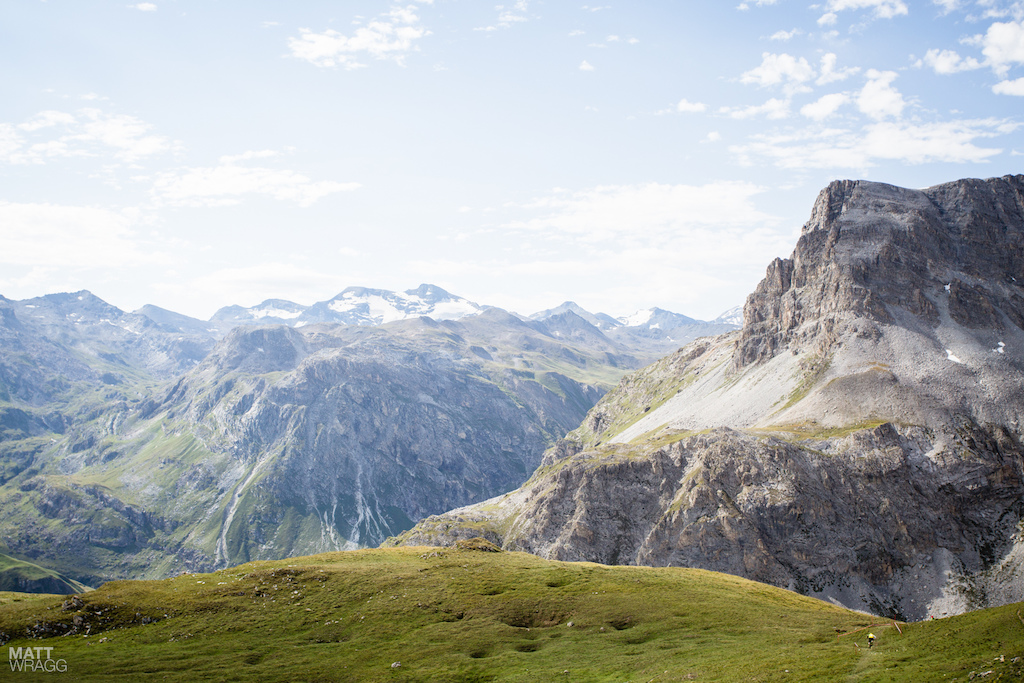
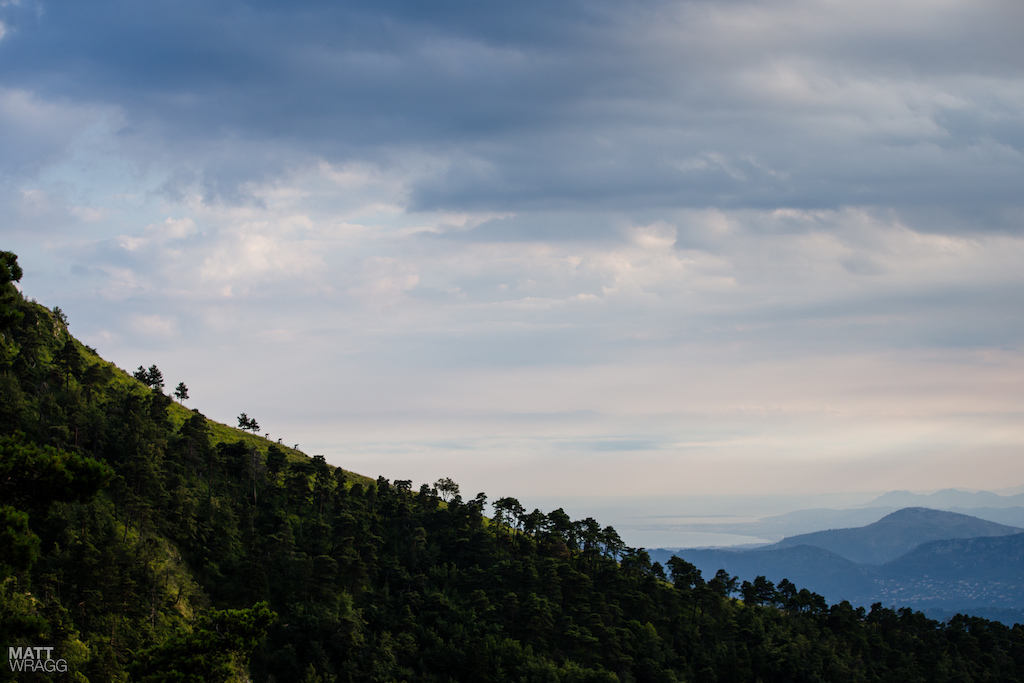
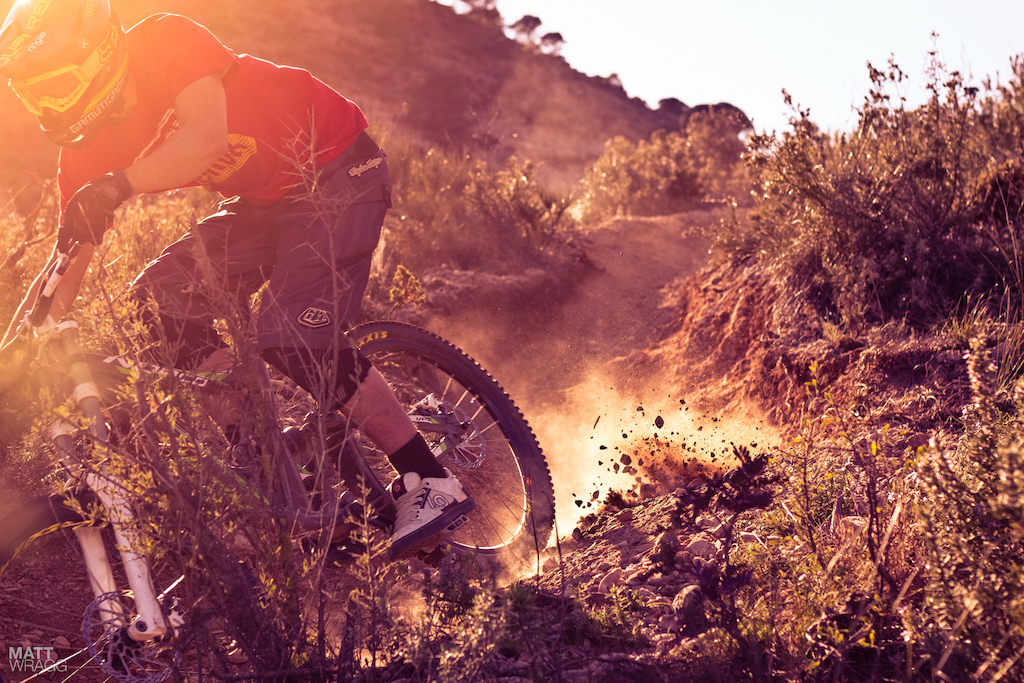
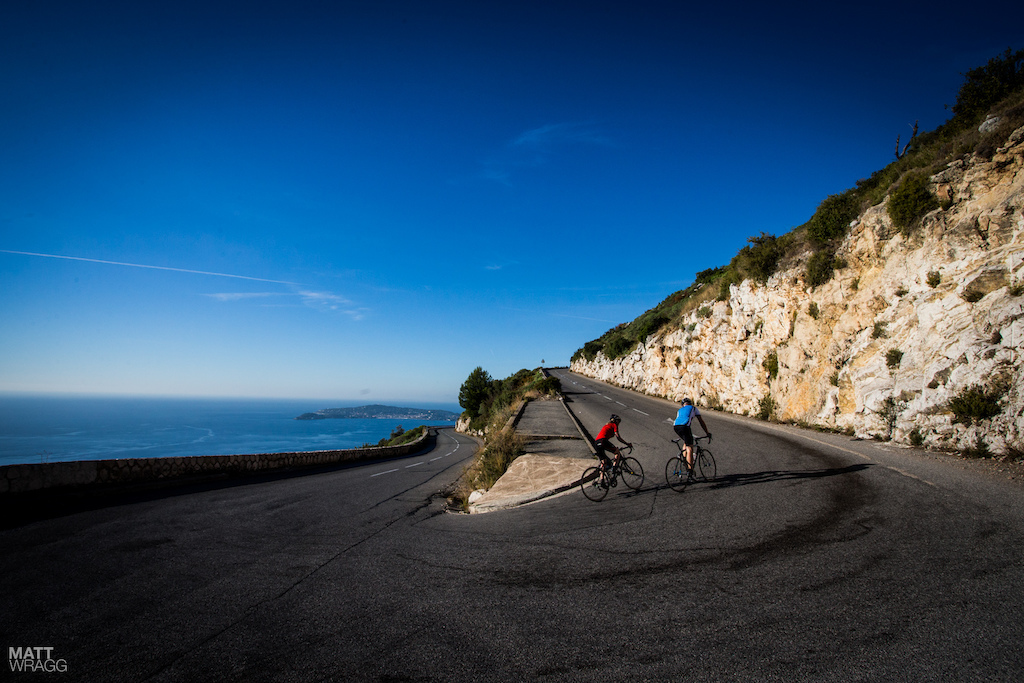
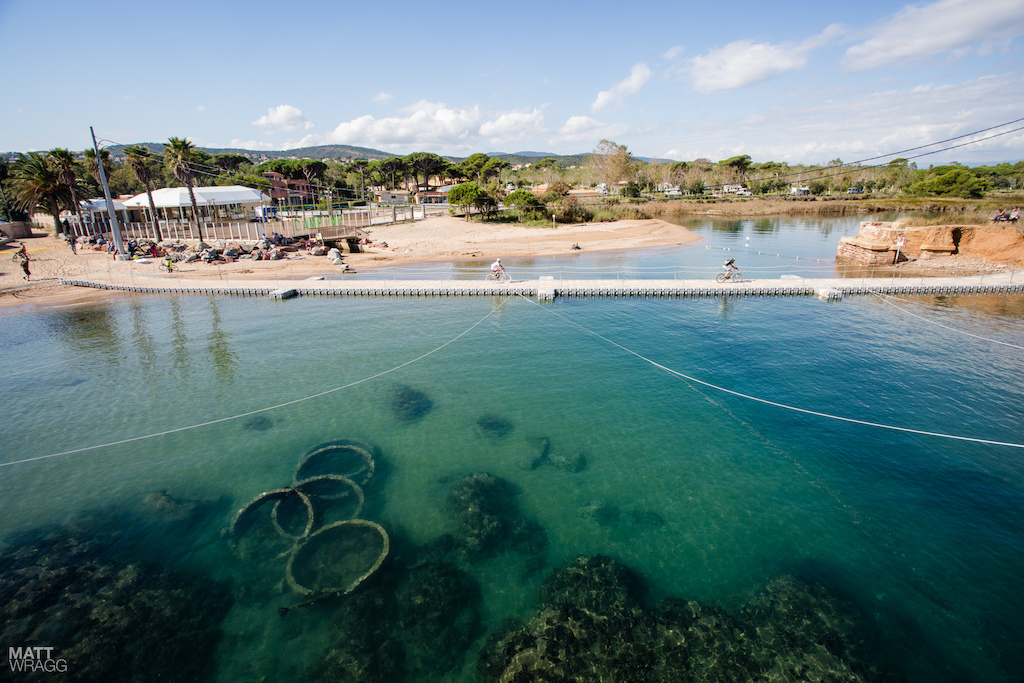
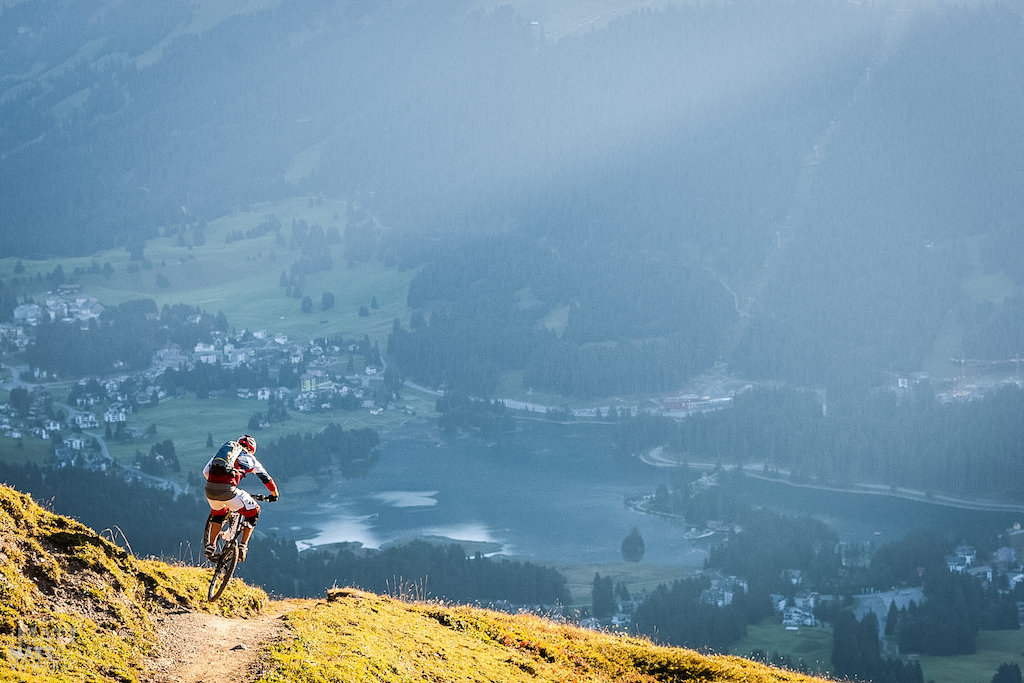
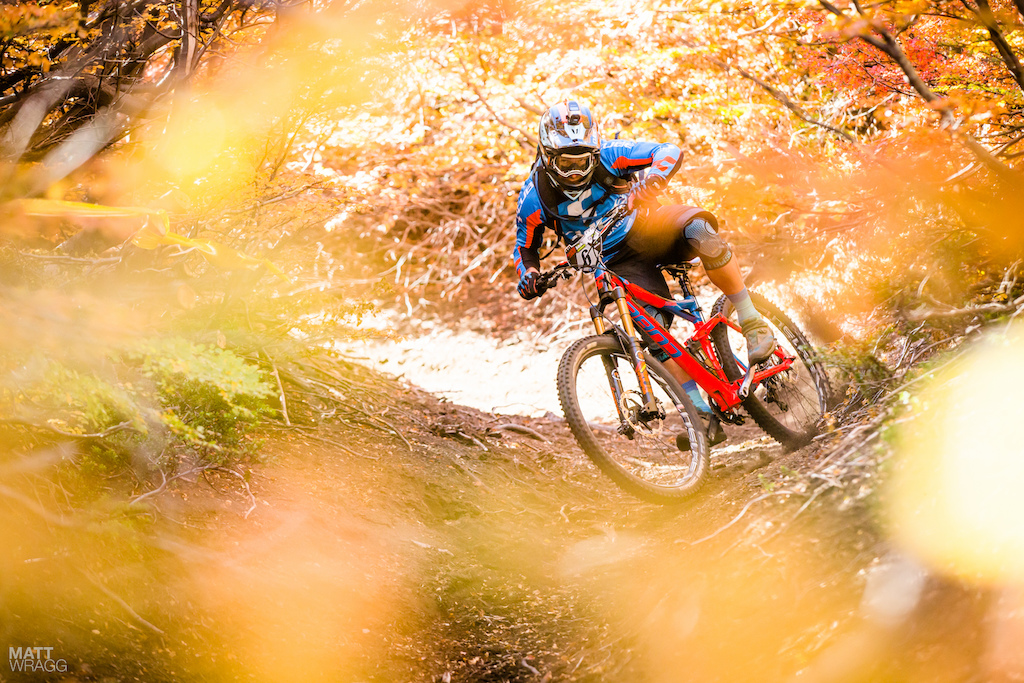
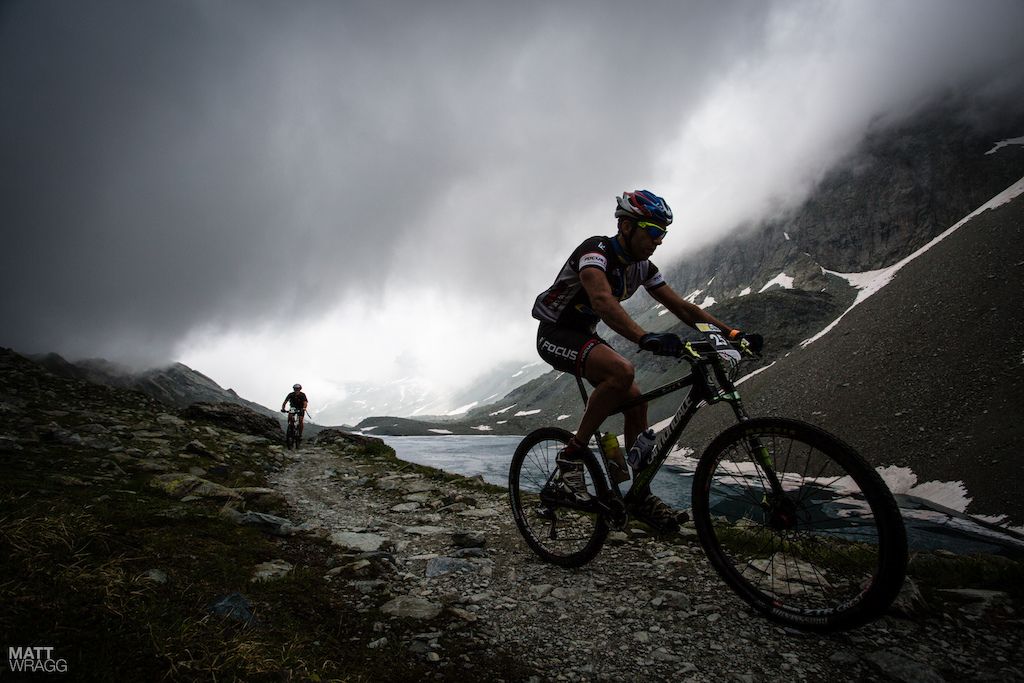
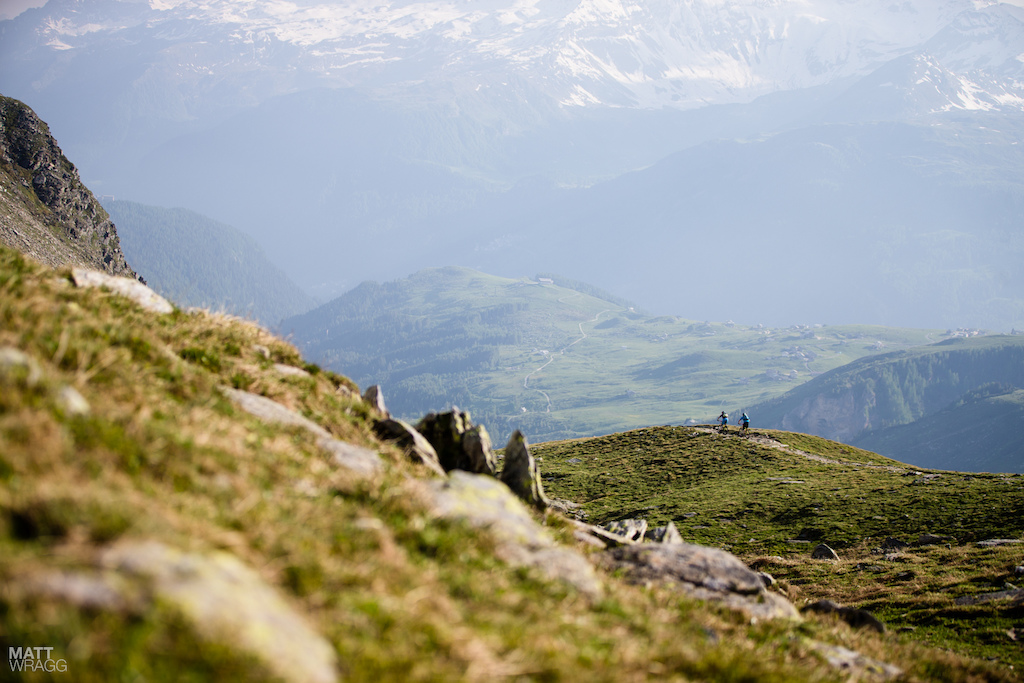

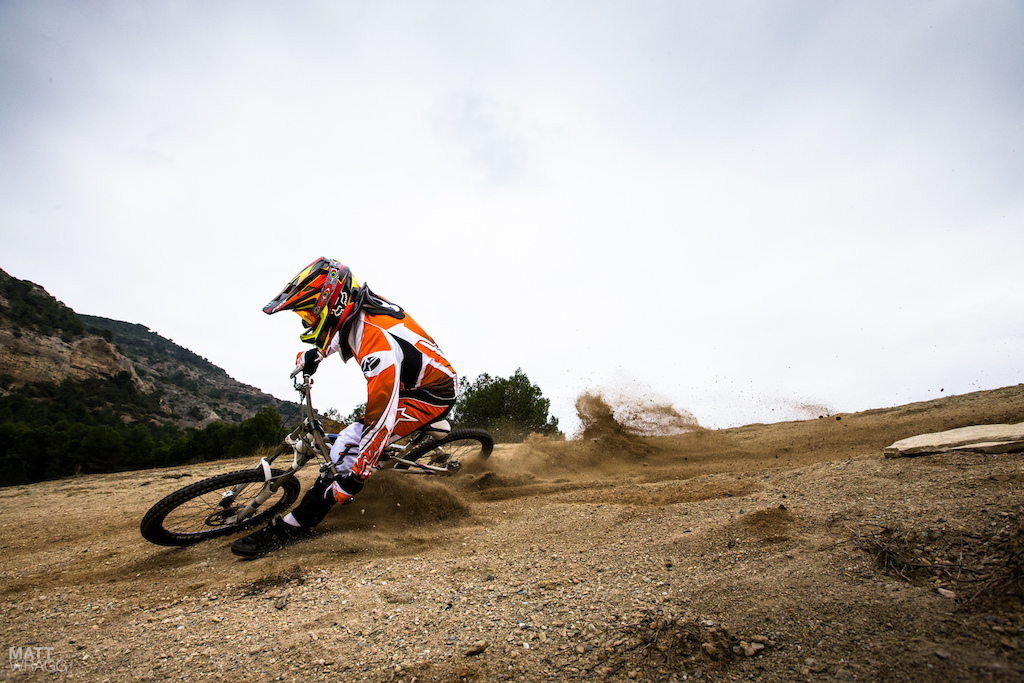
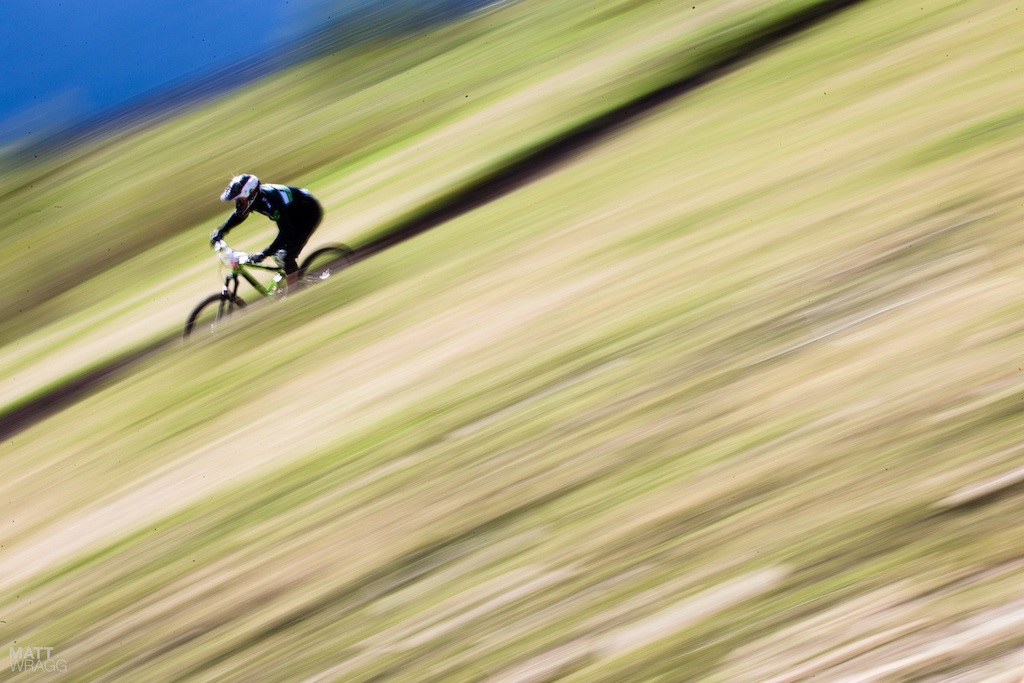
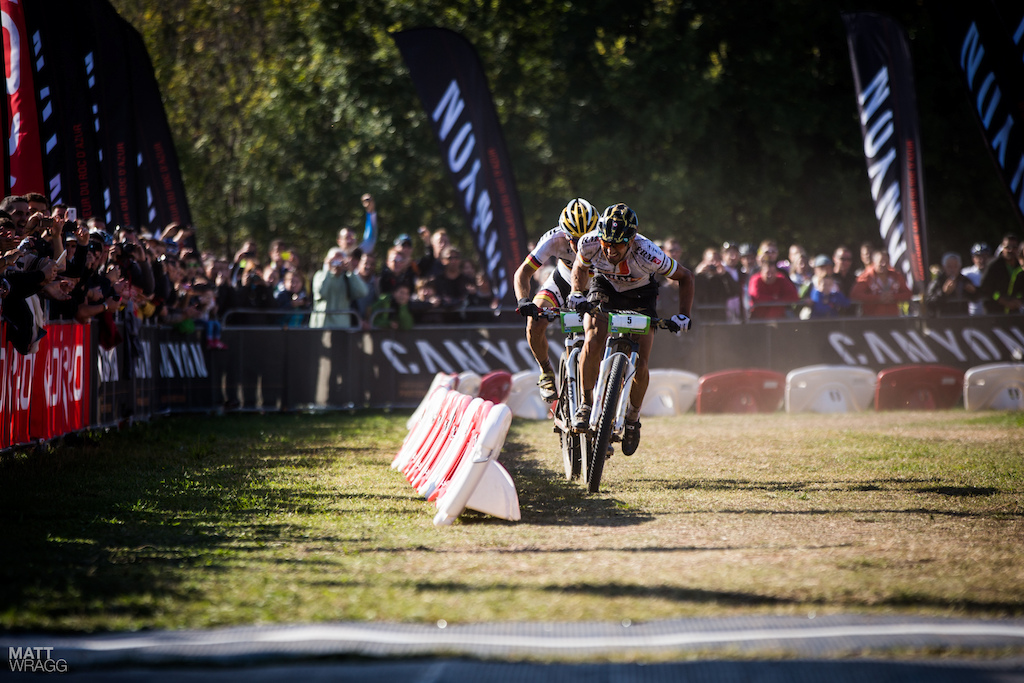
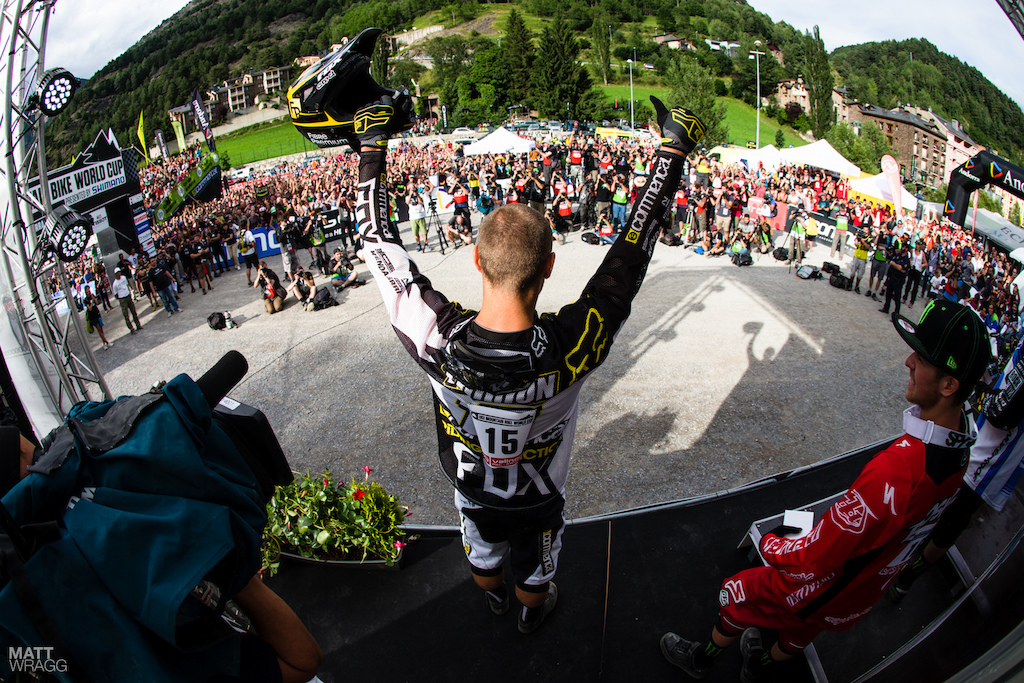
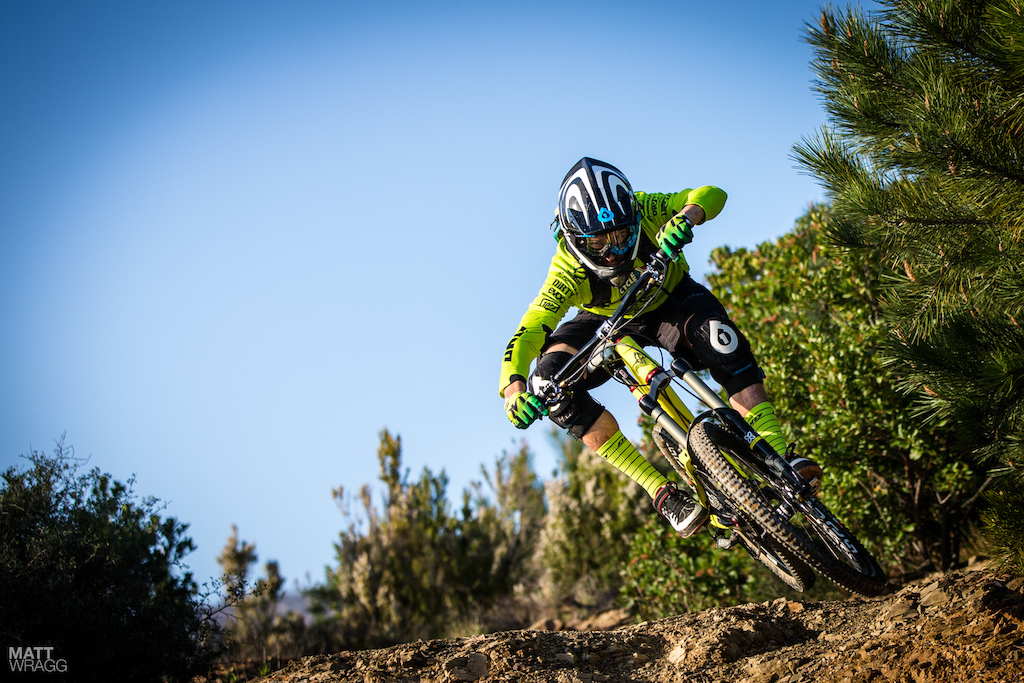
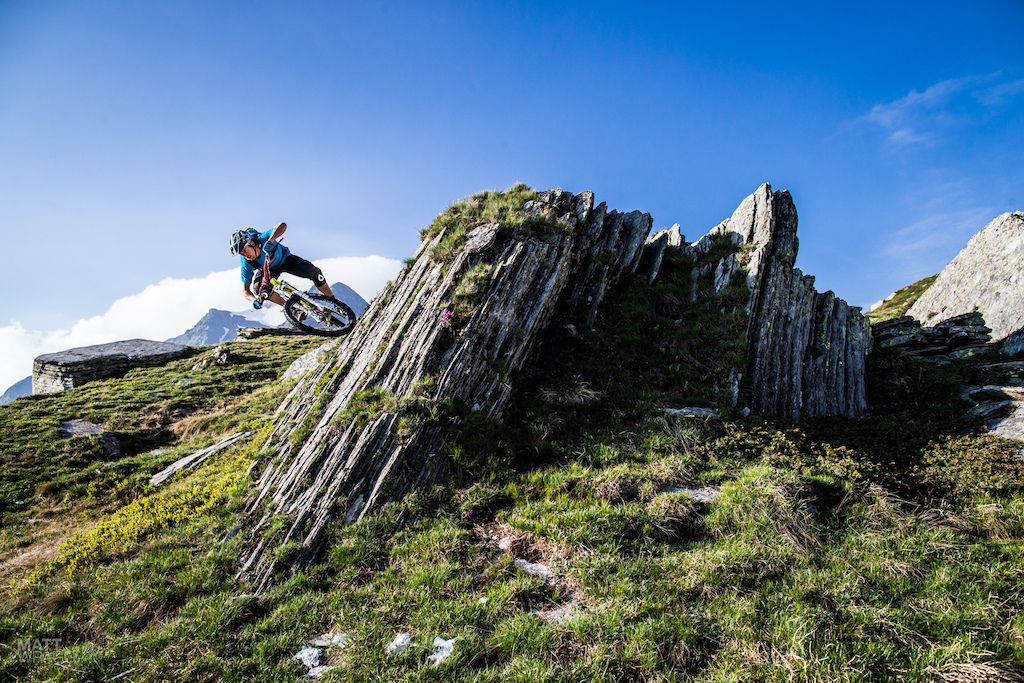
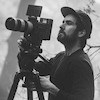
 Member since Sep 18, 2009
Member since Sep 18, 2009
Oh, and double that threat when talking about XCE.
Greg, buy that nice lad a pint :-)
1) How do you fund your start-up costs? Obviously one needs a camera, but all of the other things- website, travel expenses, extra gear etc... whenever I sit down and crunch the numbers I find that I just can't afford to set myself up in a professional way. It feels like a horrible catch 22- can't market myself professionally until I have the money, won't have the money until I can charge myself professionally(REALLY REALLY trying to avoid the "Facebook" photography business page as it seems anyone with an iPhone has one).
3) Where can someone find good technical post-processing techniques? I know I'm not perfect, and I want to learn everything I can. But what bugs me alot is, that 9 times out of 10 any tutorial I can find is incredible vague or overly basic. I'm a little frustrated with finding tutorial after tutorial on how a faster aperture will give you a "blurry" background, and almost nothing on the subtle changes a photographer will make to really refine their photos into professional quality pieces and works of art. Is this something that can be found, or does one simply need to find another more skilled photographer to help guide them?
Just teasing, but great article. This was my first behind the lens article to read and I now understand how helpful these are. I just saw what seems like an endless list below to read of other "Behind the lens.." articles. Im a starting photographer and like you said I love how free and creative you can get and make up your own style and composition, then pack it all into one shot.
Thanks for the good read PB and Matt!
Exactly what is the budget, print, web, duration.....all questions that should be asked.